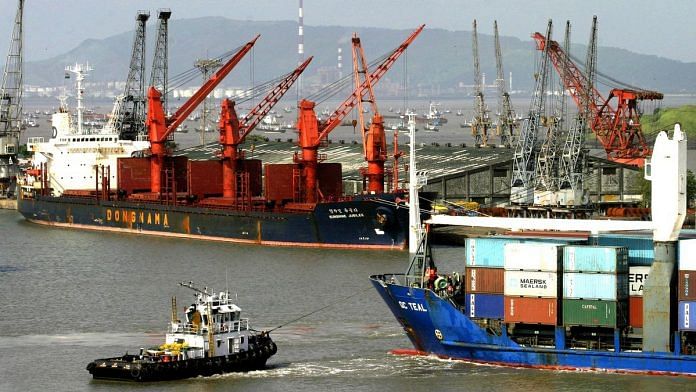The world over we have experienced the unprecedented impacts of Covid-19, with millions of lives and livelihoods disrupted. But this takes on a new meaning for the 1.4 million people who ensure that cargo keeps moving safely and that the goods we purchase, as well as the food we eat, are always available. Some of them have been stranded at sea for a year and a half now with no break, as border restrictions mean they are unable to disembark.
These are the people who ensure that raw materials can reach production lines, that finished goods and fresh produce can reach our national shores. These people are the world’s shipping crew, without whom global trade and global supply chains grind to a halt. Without them, store shelves would be bare, and bellies empty. These men and women are essential to preserving life as we know it. And they are waging a battle against fatigue and despair after endless months at sea.
In Covid-19: The Great Reset, the authors Klaus Schwab and Thierry Malleret write: “The absolute perquisite for a proper reset is greater collaboration and cooperation within and between countries.” The ongoing crew change battle threatening human and supply chain resilience is a vivid example of this need.
According to reports, we currently have more than 300,000 seafaring crew on board vessels with contract periods exceeded. Many seafarers have been at their place of work for months on end, some approaching 18 months aboard cargo vessels without a break.
Pause for just a moment to consider this reality – 24 hours a day, 7 days a week, for months on end, without the opportunity to go home, rest, and see their loved ones. In some cases, seafarers have reportedly struggled to access medical care because they have not been allowed to leave their vessels.
Since March there have been consistent calls for governments to act cohesively, for revised regulations that enable crew changes to take place in strategic ports around the globe, calls from the private and civil sector, from the International Maritime Organization, the Maritime Labour Convention, the World Trade Organization, the International Transport Workers’ Federation, the World Shipping Council, as well as from shipping companies themselves. This is in addition to direct actions at individual company level to secure crew change facilities in key ports. Maersk, the world’s largest container line and a partner organization of the World Economic Forum, has booked hotel rooms in shipping hubs for workers to be tested and quarantined before they are transported home. Since March, the Forum’s COVID-19 Industry Action Group for Supply Chain & Transport have convened discussions between private and public sector actors to support a cohesive global response.
However, despite calls for countries to adopt crew change protocols and procedures that allow crew to move safely across international borders as they join or leave ships, as well as heightened awareness and mounting concerns regarding the safety of crew and cargo, a solution remains elusive.
In June, the UN Secretary-General called on all countries to formally designate seafarers and other marine personnel as “key workers” and ensure crew changeovers can safely take place. The 75th UN General Assembly takes place this week, presenting a platform for urgent and cohesive response from nation states. Adoption of IMO-endorsed crew change protocols, with key worker status for all seafarers, would facilitate crew changes without the current restrictive burden. This is called for by myriad International Organization and industry leaders.
As the crew change crisis deepens, there is a deepening risk that mental and physical fatigue will trump the resilience seafarers have displayed throughout this pandemic. This is a human crisis first and foremost. A disruption to supply chains will also directly impact global trade and put the global economic recovery at risk. Earlier this month, Kitack Lim, Secretary General of the IMO, stated: “If the crew change crisis is not resolved, ships will no longer be able to operate safely pursuant to the Organization’s regulations and guidelines, further exacerbating the economic impacts of the Covid-19 pandemic.”
We need seafarers to be able to return home to their families, to rest and recover. And we need rested crew to get back on board to keep goods moving safely. Now is the time for a “great reset” at sea, with the coordination and cooperation needed to look beyond individual borders to the global common good.
This article was originally published in the World Economic Forum.
Also read: Ships look to replace exhausted seafarers stranded due to Covid as ports slowly open



